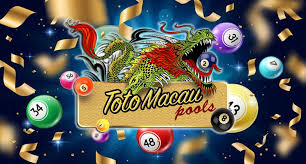The Evolution of Casinos: From Origins to Modern Entertainment Hubs
Casinos have long been emblematic of entertainment, luxury data macau, and excitement. From their humble beginnings in ancient civilizations to the opulent resorts of today, the evolution of casinos reflects not only changes in gaming preferences but also societal attitudes towards gambling. In this article, we delve into the fascinating history of casinos, exploring their origins, transformation, and enduring allure in the modern era.
Origins of Gambling:
The roots of gambling can be traced back thousands of years, with evidence of early games of chance found in ancient civilizations such as Mesopotamia, Egypt, and China. These games often involved simple activities like casting lots, throwing dice, or betting on the outcome of contests. Over time, gambling evolved from a casual pastime to a structured activity, with rudimentary forms of organized betting emerging in various cultures.
Rise of Casinos:
The concept of the casino, as we know it today, began to take shape in Europe during the 17th century. The word “casino” itself is of Italian origin, meaning “a small house,” and initially referred to a small villa or summerhouse where social gatherings took place. It was in these settings that gambling activities became increasingly prevalent, with card games like baccarat, blackjack, and poker gaining popularity among the aristocracy.
The first recognized casino in the world is often attributed to the Ridotto in Venice, Italy, which opened its doors in 1638. Established as a government-sanctioned gambling house, the Ridotto offered a controlled environment for the upper class to indulge in games of chance. However, it wasn’t until the 19th century that the modern casino industry began to take shape, with the advent of lavish gambling establishments in renowned cities like Monte Carlo and Baden-Baden.
The Modern Casino Experience:
The 20th century witnessed a significant expansion of the casino industry, fueled by advancements in technology, transportation, and entertainment. Las Vegas, once a modest desert town, emerged as the epicenter of casino culture, with iconic resorts like the Flamingo, the Sands, and the Bellagio redefining the concept of luxury and extravagance.
Today, casinos have evolved into multifaceted entertainment complexes, offering a diverse array of amenities beyond gambling. From world-class restaurants and high-end shopping to elaborate shows and immersive experiences, modern casinos cater to a broad spectrum of interests, attracting visitors from around the globe.
The advent of online casinos has further revolutionized the gambling landscape, providing convenient access to a vast array of games from the comfort of one’s home. With the rise of mobile technology, players can now enjoy their favorite casino games anytime, anywhere, ushering in a new era of accessibility and convenience.
Conclusion:
From their humble origins to the sprawling resorts of today, casinos have undergone a remarkable evolution, reflecting the dynamic interplay of culture, technology, and human nature. While the allure of gambling remains a central draw, the modern casino experience transcends mere wagering, offering visitors a comprehensive entertainment destination where luxury, excitement, and indulgence converge. As casinos continue to adapt and innovate, one thing remains certain: their enduring appeal as a bastion of leisure and excitement in an ever-changing world.

